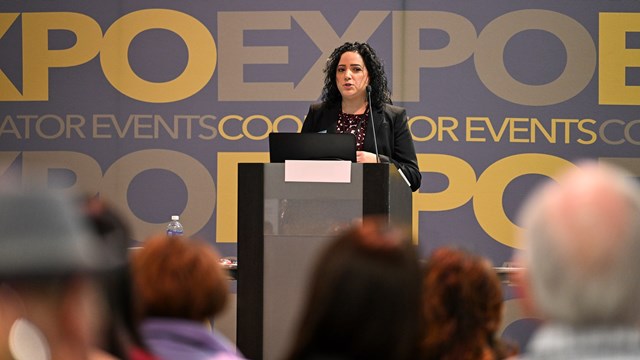A Brooklyn condominium board learned a painful lesson recently when a jury awarded $55,000 in punitive damages to a unit owner who lived with a leaking roof for 11 years.
The verdict in the case
The case was tried in New York City Civil Court in Brooklyn in July and August of 2003. I represented the unit owner at trial and from July 2000 to date. The case involved a longstanding dispute between my client and the board of managers. The jury awarded my client $15,800 in compensatory damages for property damage in addition to the $55,000 in punitive damages.
Worse yet for the board, punitive damages are not covered by directors and officers (D&O) insurance in New York State. After the trial judge denied the board's motion to set aside or reduce the amount of the punitive damage award, the board - with the approval of unit owners - imposed a special assessment on all unit owners to pay the verdict, and the verdict was paid by the board in April 2004 - with interest. Thus, all unit owners had to pay for the board's failure to address the leaks.
The dispute began in 1992 when my client purchased a duplex unit with a rooftop terrace in a new 36-unit condominium building in Brooklyn. Roof leaks occurred regularly from 1992 through 1997. After consultants confirmed that the roof was poorly constructed, the board called a special assessment on unit owners in 1997 and the roof was completely reconstructed. However, leaks continued into my client's unit.
The special assessment in 1997 required rooftop terrace owners to pay a greater share of the roof reconstruction than unit owners on the lower floors. The board contended that concrete pavers on the roof terraces had to be replaced because they were interfering with the operation of the roof. My client objected to the board's demand that rooftop terrace owners pay the entire cost for replacing the terrace pavers, and argued that all unit owners should share in this cost. When I tried this issue before the jury in July 2003, the jury agreed with my client.
My client refused to pay his $14,000 special assessment in 1997 but offered to pay his pro rata share of the roof replacement cost. The board rejected this and sued for the entire assessment in 1998. My client counter-sued for damages caused by the leaking roof during the period 1992 to 1998.
In October 1998, the parties agreed to settle this first lawsuit. My client agreed to pay $9,000, instead of $14,000. The board agreed to accept this amount, and agreed to make repairs to stop the leaks. After accepting the settlement check, the board refused to do any repairs and eventually denied that it had agreed to do additional repairs, despite documents introduced at trial supporting my client's contentions.
When the leaks continued without repair by the board, my client stopped paying common charges in protest in September 1999. His attorney at the time expressly warned the board that he would return to court and sue for damages.
In July 2000, the board of managers sued my client again, in a second action, for common charges and late fees. My client then retained me to continue this lengthy legal battle, and we counter-sued for damages for the period 1998 to present. We also counter-sued for rescission of the 1998 settlement agreement on grounds of fraud. (Rescission is a legal theory that permits agreements to be undone on various grounds as if they had never been made in the first place. One such ground is fraud.) Our fraud theory was based on the board's refusal to do any additional repairs to the roof, and the board's after-the-fact denial that it had agreed to do additional repairs. We also counter-sued for damages during the period 1992 to 1998, if the court were to grant our claim for rescission of the 1998 settlement.
The case went to trial in July 2003. Judge Sarah L. Krauss initially held a trial outside the presence of the jury to determine our counterclaim for rescission of the 1998 settlement agreement. Judge Krauss ruled in favor of my client and voided the 1998 settlement agreement on grounds of fraud and bad faith by the board of managers.
As a result of the rescission of the 1998 settlement agreement, the first lawsuit - including my client's counterclaims for damages during the period 1992 to 1998 - was tried before a jury along with the complaint and counterclaims filed in the second action, commenced in July 2000.
The jury's verdict was unanimous. The jury ruled that the board exceeded the scope of authority and acted in bad faith when it assessed a greater share of the roof replacement costs to my client, as a roof terrace owner, in order to pay for replacement of the pavers on the roof terrace. This resulted in my client receiving a $3,000 refund of his $9,000 special assessment payment.
The jury also ruled that the board breached its duty to promptly maintain, repair or replace the roof and related areas during both periods at issue (1992 to 1998 and 1998 to 2003) and that my client was entitled to punitive damages in the amount of $55,000 against the board of managers as well as $15,800 in compensatory damages for property damage.
The jury further ruled that my client was responsible for the unpaid common charges and for legal fees incurred by the board in collecting the common charges.
The case teaches various lessons to unit owners, board and managing agents.
It is important for a unit owner who is experiencing problems for which their board is responsible to document the problem and keep an organized file on it. Take photos and make sure they are dated. Keep a detailed log describing the problem, phone calls made and received, inspections made, repairs done, time lost from work attending to the problem, and so forth. Be sure to write letters - including follow-up letters - if necessary, to the managing agent and board documenting the problem and demanding corrective action. If you send and receive e-mails pertaining to the problem, be sure to print and save copies for your file. Keep all receipts from damages, no matter how minor - they eventually add up. And if the problem is serious and persistent, and the board still refuses to address it, consider hiring and obtaining a report from a professional engineer or home inspector, and send the board and managing agent a copy of the report. And, of course, consider retaining an attorney if necessary.
For the managing agent, be sure to attend to all shareholder and unit owner complaints. Letters should be responded to and not simply put in the file. Responses to such letters should be kept in the apartment owner's file. Keep track of all repairs done in response to complaints. Keep the board and the building's attorney fully informed about serious or persistent problems or complaints, and - obviously - do not renege on promises to make repairs.
Co-op and condo boards must be sure that the managing agent is carrying out the above responsibilities. Make sure that letters and complaints from unit owners are addressed and responded to. In my practice, I represent both individual apartment owners and boards, and know that nothing irks an apartment owner more than being ignored by his or her own neighbors on the board. Remember, the board has a fiduciary to duty to all unit owners in the building. Do not let personality conflicts influence your decision-making. In addition, if the dispute does end up in court, board members should stay involved and be fully informed by the building's attorney as to the status of lawsuits. Ultimately, it is the board that is responsible for the building. Efforts should be made to see if a meeting can be held with the apartment owner and the dispute can be resolved, before substantial sums are paid by both sides in legal fees, and before the unit owner suffers even more damages.
The case described in this article has had positive effects. The verdict showed the board of managers that it was time to solve the problems at the building. Unit owners recently approved a proposal to hire an engineer so that once and for all, needed repairs to prevent future leaks at the building can be made. Further, the verdict was a vindication that will allow my client to receive the repairs that were promised to him years ago, and he will finally be able to have a home with a roof that does not leak.







3 Comments
Leave a Comment